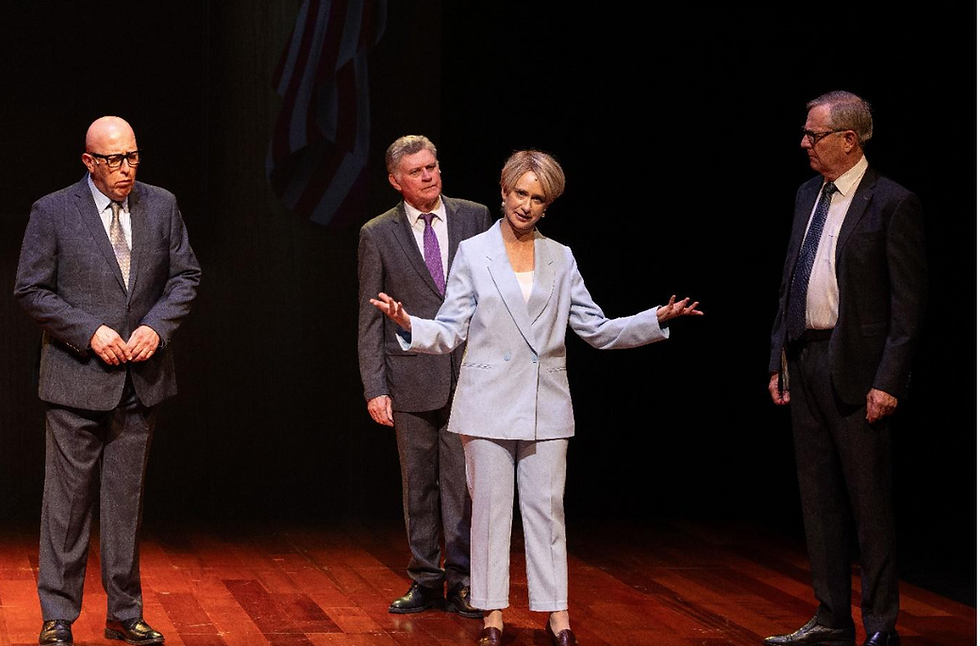Review: The Wharf Revue: Pride in Prejudice at Union Theatre
- Theatre Travels

- Feb 16, 2024
- 2 min read
Review by Liz Baldwin
The Wharf Revue, twenty-four years old this year, is an annual tradition for many Sydneysiders. Created by veteran comedians Jonathan Biggins, Drew Forsythe and Phillip Scott, the Revue sends up the year-that-was in politics with some skits, some singing, and lots and lots of wigs.
At its best, the Revue delivers pitch-perfect impersonations and cutting satire, masterfully distilling the themes from another chaotic year in politics. But the humour is uneven at times, and the show a little bloated in places.
The Revue skims lightly across a wide pool of luminaries and topics – from David Marr to the Queen; Gardening Australia to The Voice. It shined when it focused its satirical lens on Australian politics, undoubtedly its core strength. A scene of ‘Albo in da hood’ – Albanese dressed as Robin Hood at a forest-based ALP strategy meeting with Mark Dreyfus and Bill Shorten – was pitch perfect. And David Whitney stole the show as Peter Dutton singing "I must say no" (cf. the character from Oklahoma who "cain't say no"), delivering some of the biggest laughs of the night.
The most successful moments had great specificity and attention to detail that was missing from others that didn’t land as well. A fairly generic skit about three French people seeking a cause to march for missed the mark, with its obnoxiously overdone accents and reliance on broad, well-trod stereotypes (to misquote Miranda Priestly in The Devil Wears Prada: People take long lunches? In France? Groundbreaking.). Similarly, a video featuring a Russian mother with the unsubtle caption "Yelena Tittsoff" felt like cheap fodder, unworthy of the Revue at its best.
The cast was impressive across the board. Mandy Bishop delivered some memorable performances as Liberal women: a cracker Sussan Ley number that featured a contorting ‘dance around tough questions’, and a requiem for the lost Liberal women to Sondheim’s “Ladies Who Lunch”. And Jonathan Biggins was unnervingly uncanny as Trump in a prison breakout escapade.
The musical sequences – under the direction of Andrew Warboys – were a highlight. The voices were strong, the lyrics sharp, and the piano accompaniment jaunty. But the most sincere scene was a sombre a cappella reflection on The Voice referendum – a change in tone from the rest of the production, but a moving and effective piece.
Short video sequences were used to great effect to smooth the transitions between scenes, either as stand-alone bits (a faux-safety briefing for Qantas that ended in flight cancellation touched close to the bone for some grimacing audience members) or theme-song introductions to skits (Avenue Q+A was great fun). But with a run time of 100 minutes, and no interval, the show dragged a little in the middle, and one or two scenes could have been excised without great loss.
The Wharf Revue at two decades old maintains its grip on audiences, with its sharp satire, witty writing and skilful impersonations. Despite some unevenness it’s a proven formula for success for this cherished comedy institution.

Image Credit: Vishal Pandey




